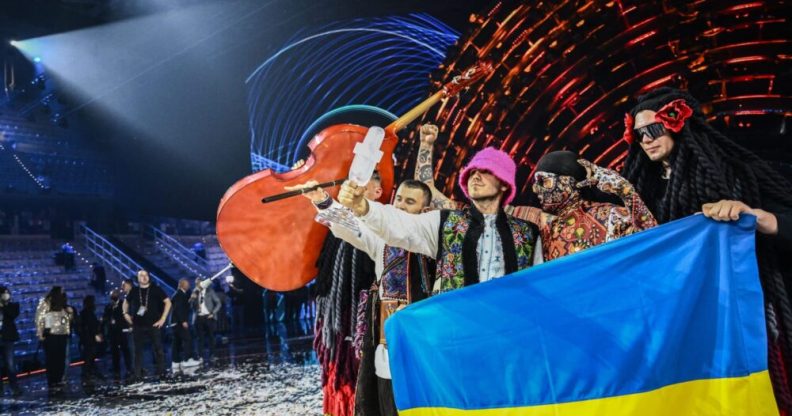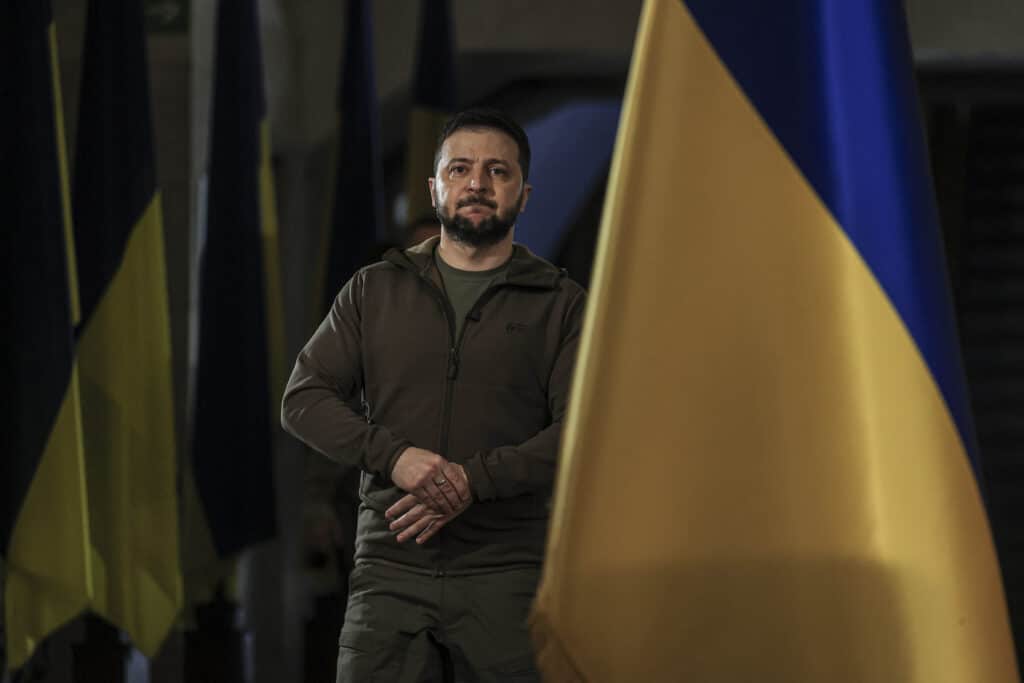Ukraine’s president Zelensky insists Eurovision will be held in war-torn city Mariupol

Ukraine’s Kalush Orchestra emerged victorious in 2022’s Eurovision. (AFP via Getty/ MARCO BERTORELLO)
Ukraine’s president Volodymyr Zelensky has vowed to one day host the Eurovision Song Contest after the nation soared to first place.
On Saturday night (14 May), Europe and beyond delivered a stunning show of solidarity with the war-torn country as viewers overwhelmingly voted for Ukraine’s act, Kalush Orchestra.
The rap and folk band beamed on the stage as they belted an emotional performance of “Stefania”, a song seen by some as a tribute to Ukraine as the motherland amid the Russian invasion.
But with Ukraine under siege, questions rose about if Ukraine will be able to actually host the international music contest next year as the war shows no signs of ceasing more than 80 days on.
In a Sunday Telegram post, however, Zelensky remained as he always does – defiant.
“Our courage impressed the world,” he wrote. “Next year Ukraine will host Eurovision for the third time in its history.”
Stressing that it will certainly not be the “last” time Ukraine hosts Eurovision, Zelenskyy said: “We will do our best to one day host the participants and guests of Eurovision in Ukranian Mariupol.”
The southern port city has been left charred and in ruins following weeks of brutal shelling by Russian forces. Wounded Ukrainian soldiers have taken refuge in the Azovstal steel plant, making it the last holdout before Russian president Vladimir Putin can declare victory.

Ukraine president Volodymyr Zelensky. (Metin Aktas/Anadolu Agency via Getty Images)
At least 21,000 civilians have been killed by the fighting, officials estimate.
Those trapped within Maruipol have described bleak and hopeless living conditions, surviving off meagre Russian rations as Russia attempts to conceal the city from the outside world.
Kalush Orchestra made an impassioned plea during Eurovision for the embattled fighters to be rescued from Azovstal.
Zelensky sees a different Mauripol, too. “Free, peaceful, rebuilt!” he said, sounding an optimistic tone.
“Thank you for winning, Kalush Orchestra, and everyone who voted for us. I am sure that our victorious chord in battle with the enemy is not far off. Glory to Ukraine!”
Hosting Eurovision comes with a lengthy checklist. These range from certain requirements about what station can broadcast it to how many people the venue can accommodate.
Traditionally, if a winning country cannot host, one of the “big five” Eurovision countries –France, Italy, Spain, Germany and the UK – do so instead.
With the UK coming second place, some wondered whether the nation would host Eurovision in its place. The UK has actually stepped in to host the competition when the winning country could not in the past four times, such as for Luxembourg in 1974.
“One way or another,” tweeted British defence secretary Ben Wallace, “it will be in Ukraine!”

